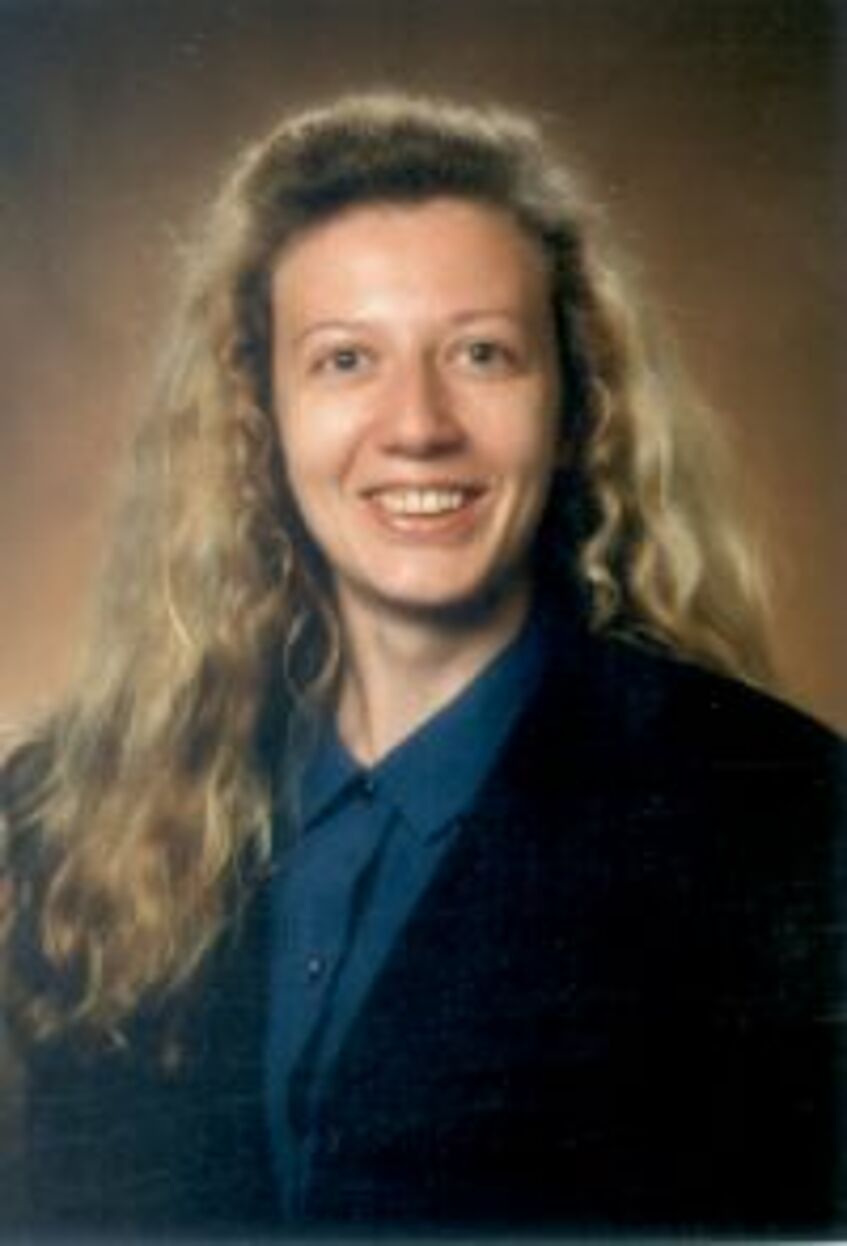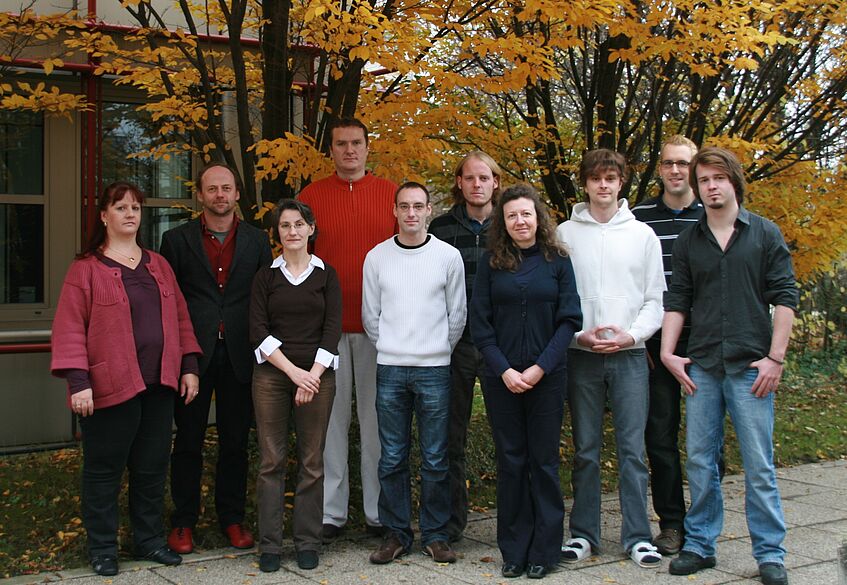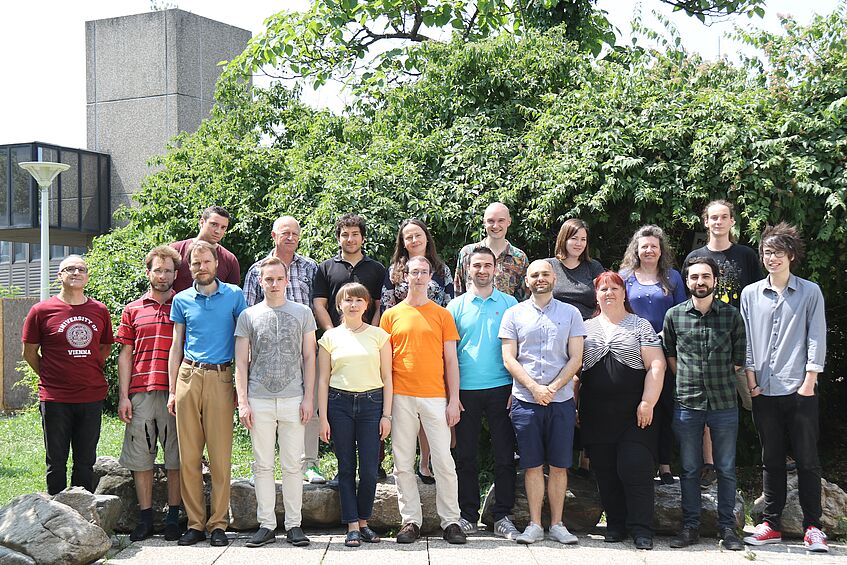Annette Rompel: Pioneer for Women in Chemistry at the University of Vienna
In 1984, a young woman began studying chemistry in Münster, Germany, and in 2008 she became the first female professor of chemistry at the University of Vienna. Why did Annette Rompel decide to study chemistry?
There were no chemists in her family, explains Rompel. Her mother had studied pharmacy, but it was the excellent chemistry lessons at school that sparked her enthusiasm. Dedicated teachers also made it possible for her to take part in the Chemistry Olympiad. She emphasises: "It is crucial for the future of chemistry that the subject is explained to students in a vivid and engaging way, and that talent is encouraged and nurtured."
Her family actively supported her in her chosen career. In particular, her father, who had to abandon his medical studies in the economically difficult post-war period, made it a priority to enable both daughters to obtain a university degree - both through encouragement and financial support. This support enabled Annette Rompel to concentrate fully on her studies.
California offers a new perspective

Annette Rompel in 1995 at the Lawrence Berkeley National Laboratory
After completing her doctorate, she left the conservative environment of the University of Münster for a research fellowship at the Lawrence Berkeley National Laboratory at the University of California. Judith Klinman, who like Annette Rompel worked in the field of copper proteins, had become the first female professor there in 1978, followed by Darleane Hoffmann in 1984. "In the USA," Rompel recalls, "women already had a different status in chemistry and science. The atmosphere was more open, you felt more equal." This experience shaped her understanding of the importance of a supportive environment and female role models in science.
She returned to Münster in 1996 and habilitated there in 2000, followed by an assistant professorship at the University of Odense and a temporary professorship in biotechnology in Münster, before becoming the first female professor of chemistry at the University of Vienna in 2008. At the time, the glass ceiling was still firmly in place: It was only in 1975 that Nelly Konopik had become the first woman to receive a venia docendi in chemistry. An exhibition on the history of chemical research at the university to mark the Year of Chemistry in 2011 could only feature male chemists.
Moving to Vienna

Annette Rompel and her team in Vienna (2009)
After her appointment, Annette Rompel worked hard to create a positive working atmosphere by seeking personal talks with all her habilitated colleagues, including a handful of female associate professors. But the road was not always easy. The situation for women at university and in research has changed dramatically over the last 30 years," she says. "Women are now welcome in the faculty."
The appointment of other women professors in the following years has contributed significantly to this change: Doris Marko (2009, Food Chemistry), Anja Lembens (2010, Didactics of Chemistry), Leticia González (2011, Theoretical Chemistry), Veronika Somoza (2011, Physiological Chemistry), Gunda Köllensperger (2014, Analytical Chemistry) and Ellen Backus (2018, Physical Chemistry). Also in 2018, Margit Cichna-Markl was appointed university professor in a competitive internal university procedure.
The FWF's funding programmes also play an important role. The ESPRIT and ASTRA programmes, which replaced the Elise Richter and Herta Firnberg programmes, support women in the postdoctoral phase. ASTRA provides, among other things, additional funding for women in tenure-track positions or at the professorial level. Annette Rompel, who represents the field of inorganic chemistry as a scientific advisor on the FWF Board, also emphasises how important it is for EU committees to ensure that the gender balance of reviewers is as balanced as possible.
She has always seen herself as a mentor for the young female scientists in her working group: Astrobiologist Tetyana Milojevic received an ERC Consolidator Grant in 2020 and is now a professor at the Centre for Molecular Biophysics in Orléans. Nadiia Gumerova, who came to Vienna from Ukraine with a Lise Meitner Fellowship in 2017, is a successful researcher in the field of bioactive materials.
And today?

The working group of the Institute of Biophysical Chemistry in 2017
Looking back, Annette Rompel is satisfied: she has successfully established the Institute of Biophysical Chemistry and has been able to realise her scientific plans. Research in her laboratory focuses on unravelling the fascinating links between chemistry and biology. With an innovative interdisciplinary approach, her work bridges the boundaries of traditional scientific disciplines and creates new opportunities to address pressing challenges in ecology, health and technology.
Her advice to young women considering a career in science? "Do at least one postdoctoral position at an internationally renowned university and then take advantage of one of the return programmes. Of course, you have to be competitive, but there are good funding opportunities now". Challenges such as balancing family and career still exist, but there are also many advances that have made science more accessible to women.
